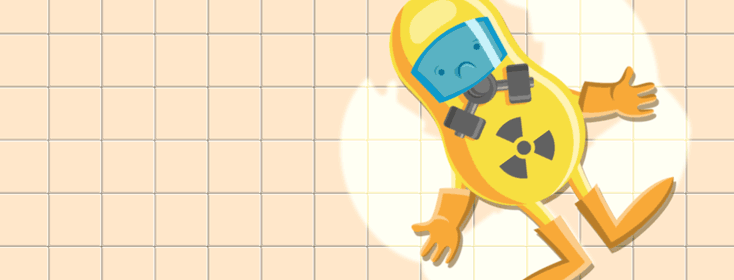Household Chores With Atopic Eczema
With atopic eczema, it is important to protect yourself while doing chores around the house. With a few simple tips, you can keep your house clean and not irritate your skin.
Glove-up!
Protecting the skin on your hands while cleaning can be an important step in preventing a flare. The chemicals that are in many cleaning products can damage the skin barrier which can, in turn, cause an atopic eczema flare-up. Using gloves while cleaning can be an easy way of protecting your hands! Gloves can be worn while washing the dishes to scrubbing the tub! Some people may have an allergy or sensitivity to latex which is what gloves are often made from. If you have a sensitivity or allergy to latex you can get latex-free gloves (such as nitrile gloves).
Choose products wisely
Dyes that are synthetic, fragrances that are synthetic, alcohol, sulfates, formaldehyde, ammonia...oh my! These are just a few of the many ingredients that are found in some cleaning products. For some people, these ingredients can trigger a flare-up of atopic eczema. While oftentimes direct contact with the product can be the culprit of the flare, inhaling the ingredients as you are cleaning with them or touching objects that have been cleaned with the product may also trigger a flare. It may take some trial and error (and time) to find what products work best for you and your family. Some products have labels that say they are "organic" or "all-natural," remember that these labels may not always reflect what is in the ingredients. If you want to venture into making your own products at home, ingredients that are good for cleaning are lemon juice, baking soda, white vinegar and Castile soap.
Vacuuming
A regular vacuuming routine can help keep irritants that may be hidden at bay (like dust mites!) Having a central vacuum system in the house is a way to help manage dust or a vacuum that runs autonomously. Don't forget to consider places that may be more challenging to vacuum. Other places where dust can collect is on a mattress or other fabric surfaces. For mattresses, it can be good to purchase a cover for your mattress that can be washed or to regularly vacuum it.
Laundry Day
Clothes can be a challenge for those living with atopic eczema. There can be many fabrics that irritate the skin of those with eczema, so when you find what fabrics work for you, you want to make sure that when the clothes need to get cleaned that the laundry detergent doesn't cause an atopic eczema flare. Laundry detergents and dryer sheets can potentially cause flare-ups. Like cleaning products, detergents can be loaded with fragrances, dyes, and chemicals that can be harmful to sensitive skin.
What are your tips and suggestions for doing things around the house when you have atopic eczema?

Join the conversation